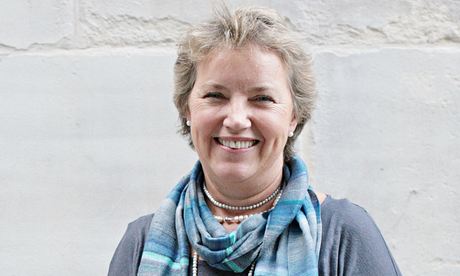
Caroline Thomson, the chair of Digital UK, has said that Freeview faces the threat of "switch off by stealth", as mobile companies look to muscle into the airwaves it occupies.
She warned that Freeview, which is the main TV set in 11m households, and the part it plays in public service broadcasting, must "not be taken for granted" by public service broadcasters and politicians.
This year the government and regulator Ofcom are making what Thomson said were "significant decisions" concerning the spectrum Freeview broadcasts on that could have "unintended consequences for terrestrial television and the future delivery of free-to-air content … [and] disastrous consequences for the UK's broadcasting sector overall."
Mobile phone companies would like access to more spectrum as the demand for mobile data grows so they "are jostling … and vying for space" with broadcasters, said former BBC chief operating officer Thomson.
Speaking at the Voice of the Listener & Viewer annual conference in London, Thomson warned that some policy makers in broadcasting who, "devote their energies to the sexy and new" world of mobile and the internet, risk "neglecting the established old. There's a risk of this happening with the current discussion about spectrum."
She warned of a "switch off by stealth" of free-to-air public service broadcasting on DTT through an "insidious erosion of the effectiveness and attractiveness of Freeview. Not so much a drip by drip as slice by slice as spectrum is allocated to mobile."
"Reliability and predictability are the key strengths of Freeview. How many times can government ask viewers to buy new boxes or new sets or reposition their aerials before consumers decide it isn't worth it any more?"
"And if the proposal is to leave Freeview with just enough spectrum for simply the core public service broadcasters – this would create a two-tier broadcasting world."
Thomson pointed out that although around 2% of viewing is via iPlayer it takes up around 12% of the BBC's distribution costs.
"Despite what the technologists and the media would have us believe, live television is hugely popular. 90% of viewing is still live broadcast. Catch up is a tiny proportion of all viewing with iPlayer making up just over 2% of all BBC viewing."
She said she was "sceptical about predictions that demand for mobile data is going to grow so exponentially that DTT must vacate its key frequencies to make space for them".
Freeview also generates almost £80bn for the UK economy said Thomson "and with more than 40% of all viewing via DTT, helps deliver £3bn of annual TV sector revenues."
She went on: "Viewing behavour will change. And we have to adapt to that. But it's not going to be as fast as some of the future-gazers make out."
She said that while Britain needs a successful mobile phone industry and "cash strapped governments can get lots of money auctioning off the spectrum to mobile companies", the "fact that few people, even in broadcasting, understand spectrum and that it doesn't recognise so its allocation is an international affair and you have a recipe for disaster."
Thomson asked VLV members to write to local papers and politicians to "actively engage with government and Ofcom and speak up for Freeview and viewers … as free-to-air television is worth fighting for."
An Ofcom spokesman said: "Ofcom is committed to ensuring that digital-terrestrial television continues to thrive. We believe we can achieve this while also making extra spectrum available to meet consumers' growing demand for mobile services.
"Ofcom will hold a full public consultation on its proposals later this year to give all interested parties an opportunity to present evidence."
• To contact the MediaGuardian news desk email media@theguardian.com or phone 020 3353 3857. For all other inquiries please call the main Guardian switchboard on 020 3353 2000. If you are writing a comment for publication, please mark clearly "for publication".
• To get the latest media news to your desktop or mobile, follow MediaGuardian on Twitter and Facebook.

